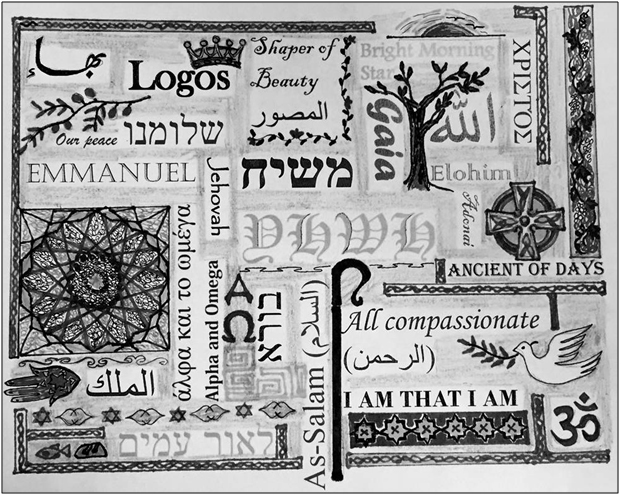“Rumi said that all words are fingers pointing to the moon, and we think the words are the moon. But because of the light, the light of love, the energy and motion that have called us to prayer, bits of this deeper reality are perceivable, and little bits of it will have to do.”
~ from HELP, THANKS, WOW: THE THREE ESSENTIAL PRAYERS by Anne Lamott
Marveling at how very young children accomplish the astonishing feat of language acquisition makes me wonder about the power and meaning of words. The nature of being human is that we need to shape thought into language. The way we use language with each other can either hurt or heal, confound or connect. As inadequate as they may be, words help us attach names to meanings, express and share ideas, and circle round questions together. How do words in turn shape our ideas and beliefs? What does it mean to use culturally laden or gender specific names for God? Do they help us to understand more about God or about ourselves? If various world religions have different words for the names of God—the Compassionate One, the Light, the Truth, the Eternal, the Creator—is this more a matter of form than substance, language than meaning?
“The term Gaia has caught on among those seeking a new ecological spirituality as a religious vision. Gaia is seen as a personified being, an immanent divinity. Some see the Jewish and Christian male monotheistic God as a hostile concept that rationalizes alienation from and neglect of the earth…I agree with much of this critique, yet I believe that merely replacing a male transcendent deity with an immanent female one is an insufficient answer…”
~ from Rosemary Radford Ruether in GAIA AND GOD: AN ECOFEMINIST THEOLOGY OF EARTH HEALING

